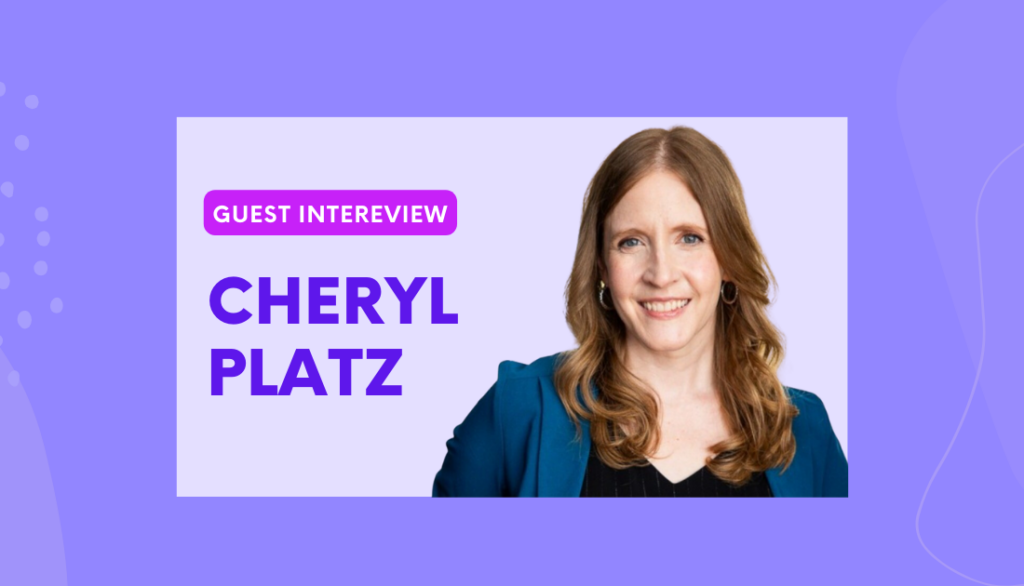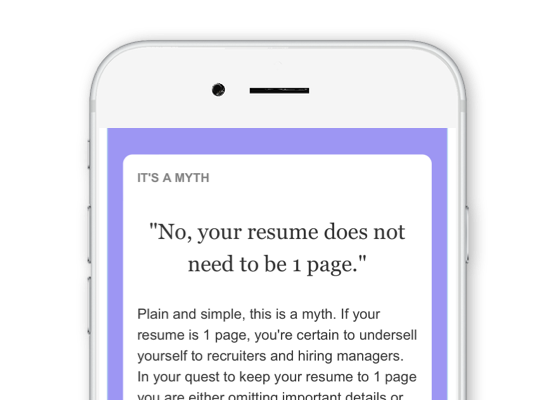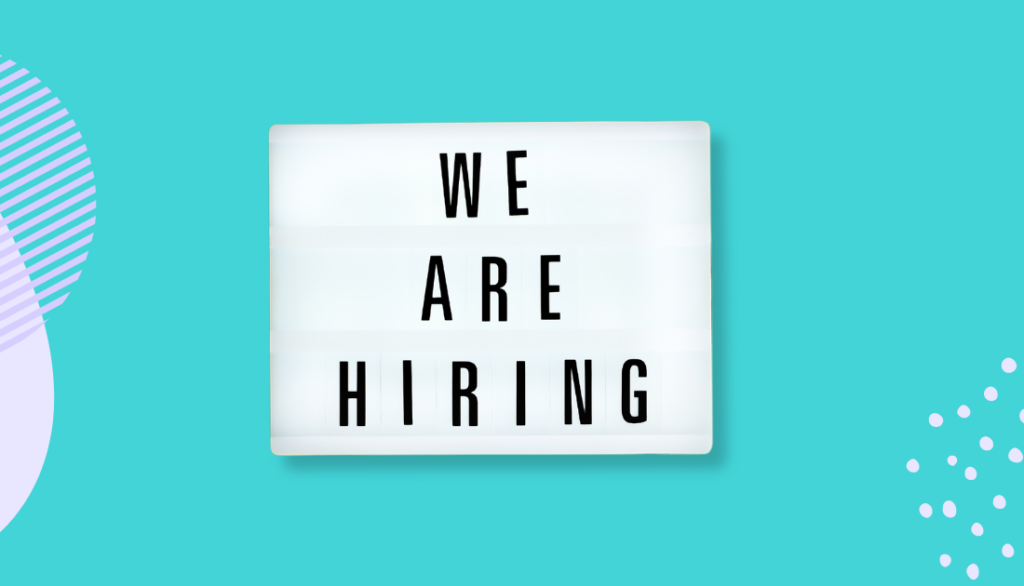Episode 67
It’s a myth that your resume must be one page, here’s why it can hurt your job search
11 min listen
Episode 29
11 min listen

Listen to the Episode
Episode Summary
Spoiler alert, your resume does not need to be one page. In this episode, we debunk the myth of the one page resume. Host Sarah Doody dives into why this outdated advice can actually hinder your chances of landing interviews and advancing your career.
A one page resume can actually sell you short as a candidate because it won’t clearly articulate your skills and experience. And, by cramming everything onto one page, you risk creating a hard-to-read document that fails to capture the attention of hiring managers. Instead, Sarah advises listeners to go beyond listing responsibilities and focus on providing concrete examples and receipts of their accomplishments.
The goal is to create a two-page resume that stands out from the competition and makes recruiters and hiring managers spend more than the infamous 6 to 8 seconds. Don’t let your resume hold you back – listen to this episode and level up your career strategy today.
Create your dream career, and life
- Book a free Career Strategy Call to learn how we can help you
- Get our free Career Roadmap to help you navigate your career
- Check out Career Strategy Lab, our 3-month career coaching program
Watch
Discussion Questions About The Episode
- How has the myth of the one-page resume influenced your own approach to crafting your resume? Has this belief hindered or helped your job search?
- Sarah shared that a one-page resume can limit the ability to effectively communicate skills and experience. Reflect on your own resume. Are there any specific examples or details that you may have omitted to keep it one page? How do you think including those details could enhance your resume?
- Do you agree with Sarah that the one-page resume myth is false? Why or why not? How do you think this misconception came about? Do you think it still holds true in today's job market?
- Sarah emphasized the importance of showing "receipts" and providing examples of how you achieved certain responsibilities in your previous roles. How could you incorporate more specific examples and results into your resume to demonstrate your abilities and stand out to hiring managers?
- Reflect on the concept of capturing the attention of recruiters and hiring managers in 6 to 8 seconds. How can you make your resume more engaging and compelling within this short timeframe? What changes or additions could you make to your resume to ensure it prompts further interest and consideration?
Episode Transcript
Sarah Doody [00:00:00]: Hey there. I’m Sarah Doody, host of the Career Strategy Podcast. Many professionals are seeking more impact flexibility, growth, and let’s face it, getting paid what they’re worth. But how do you unlock this in your career? It starts with strategy. I’m taking you behind the scenes of what’s working for my career coaching clients. You’ll hear strategy and actionable yet sometimes against the grain advice for how you can be the CEO of your career and stop dreading Mondays. Ready to level up your career? Let’s get after it. Hey, everyone.
Sarah Doody [00:00:39]: Welcome back to another episode of the Career Strategy Podcast. And today, we have a juicy episode for you all about myths in Job search. And one of the myths I wanna talk about is your resume, specifically the myth that resume should be one page, which is a 100% false. And as you can tell, I have really strong opinions about this And this really comes from seeing now thousands of resumes from people who are in the career coaching programs I run and seeing the consequence of making a one page resume. And the consequence of a one page resume is that you sell yourself short. You don’t articulate your skills and experience clear enough to capture the attention of the user or the reader of your resume. And as a result, you apply to jobs and you don’t get interviews, or maybe you do get interviews But when it comes to actually answering questions in the interviews, you really fall short. Why? Part of it is because If your resume didn’t go into the details of what you did, then you’re really not setting yourself up to be successful when you’re asked to talk about stuff on your resume.
Sarah Doody [00:02:01]: So to be clear, a resume does not need to be limited to one page because when you do this, here’s what most people do. Number 1, people make the font size super small, to try and cram everything on to one page. And in addition to making the font really small, they smush things together they get rid of a lot of white space, and the resume literally becomes hard to read, skim, and scan, because of the design and layout of the resume and the font size choices, etcetera, that someone made to make it fit on one page. Or another mistake people make is that they might also omit things from their resume in order to make the information fit on one page. So they may have had a bunch of awesome bullet points for various elements of their job history. But in order to make it fit on page, they ended up cutting a bunch of those bullet points. And when you do that, you are cutting examples of your skills and experience, but that’s why hiring managers and recruiters want to see. So where did this one page resume myth come from? To be honest, I don’t know.
Sarah Doody [00:03:25]: And it drives me a little nuts. because I really wish I could figure out who is spreading this rumor because it’s so false, and it is preventing people from getting interviews, and it’s making their job search take a lot longer than it needs to be. They’re not getting interviews because when they apply to jobs and their resume is only one page, they don’t stand out. And why don’t they stand out? It’s because recruiters and hiring managers wanna see receipts. Your resume needs to show the receipt. as the young people say. But if you are removing bullet points or keeping bullet points just to one line and using a few words as possible, you are not communicating the details of what you did. So as an example, Let’s imagine someone who is a user researcher or UX researcher.
Sarah Doody [00:04:21]: And on their resume, in order to make it fit on one page, Some of the bullet points might sound like I was responsible for conducting research. I was responsible for creating a survey. I conducted interviews You know what that sounds like? A job description. Recruiters and hiring managers don’t want the bullet points on your resume to be a carbon copy of what is on the job description. Instead, they don’t just wanna know what you did or what you were responsible 4, they wanna hear and see examples of how you did that in that job. So instead of saying, I was responsible for creating surveys, which is pretty darn boring, instead they could think to themselves What is an example of a survey I created in my previous job and use one bullet point to talk about that? Maybe You did a survey that went to 500 or 5000 people. Okay. Those are important details.
Sarah Doody [00:05:25]: A survey that goes to 500 or 5000 is a lot different than goes to 5. But if you don’t tell us the that number, we won’t know the scope of what you did. So make sure you’re not just saying what you did, such as I was responsible for making a survey and instead give us examples and say, I was responsible for creating, a survey that went 500 people in which we wanted to learn x, y, and z. That would be one example. You could phrase that in a variety of ways. The point trying to make is when your bullet points sound like a list of responsibilities or when they only explain what and not the details of how you did it, why you did it, what software, what was the scope, what happened. Is there any numbers you can include? That is what will help you and out. And you probably heard this stat that floats around in job advice articles and on social media, etcetera, that says recruiters and hiring managers only spend 6 to 8 seconds on your resume.
Sarah Doody [00:06:34]: There’s an and there, right? It’s yes. And if your resume captures their attention, they might spend more than 6 to seconds, and that’s what we want. Right? But resumes that are one page that just say a bunch of responsibilities and don’t show the receipts are not going to capture the attention of people enough to get a recruiter and hiring manager to spend more than 6 to 8 seconds. And if you wanna get interviews, you need to capture their attention with your resume. So I want you to think about your resume. Maybe pause this, look at your resume right now, and ask yourself, number 1, is it one page? If so, why is it one page? Did you have a previous version that was two pages, or did you have bullet points that you deleted If so, go find those because you’re gonna need them when you make the 2 page version of your resume. If you’ve received feedback from people who’ve said your resume should only be one page, go back to them and say, why? ask them if they have a reason. Maybe they have an interesting reason that I haven’t heard yet.
Sarah Doody [00:07:49]: I don’t know. But chances are it’s probably just going to be while recruiters and hiring managers only spend 6 to 8 seconds, so it has to be one page. Now you know the reason why you may wanna make it two pages and how you can get someone to spend more than 6 to 8 seconds with your resume. So after you look at your resume and you ask your off, is it one page? And if so, why is it that way? I want you to look through your bullet points and ask yourself, does it read like a list of responsibilities? Is it only just explaining what you did or what you were responsible for, or does it include examples or receipts? And if it doesn’t include re examples or receipts, you need to put those in there because those details are what will help capture people’s attention and make you stand out from other candidates. Trust me. I’ve seen enough resumes to know that so many candidates apply to jobs with poorly written resumes that only scratched the surface and just talk about what they did and sound like job descriptions. I promise you, if you take the time to show the receipts, to go beyond responsibilities, and make your resume two pages, you’ll stand out from other candidates, recruiters and hiring managers will spend more than 6 to 8 seconds on your resume, which will drastically increase the chances that you actually get an interview. So I hope today’s tips were helpful and that you’re able to do a quick refresh on your resume.
Sarah Doody [00:09:29]: and reframe this totally false advice out there that your resume needs to be one page because it doesn’t. I have seen so many people in my various programs transform their resumes from one page to two pages and then guess what? Start getting interviews, start moving along in the interviews and ultimately get job offers. Plus another benefit of taking the time to go into this level of detail is that if you go beyond the what and go into the details of how you did it, why you did it, what happened, etcetera, you are gonna be far more confident and prepared to talk up the things on your resume in an interview. And that’s how you can go from someone who’s applying to jobs and not even getting interviews, then be someone who gets interviews, progresses in the interviews, and ultimately gets job offers. Alright. I hope this was helpful. I will see you on a our episode of the podcast very soon. Thanks for listening to the career strategy podcast.
Sarah Doody [00:10:37]: Make sure to follow me Sarah Doody on Twitter, instagram, YouTube, or LinkedIn. If anything in today’s episode resonated with I’d love to hear about it. Tag me on social media or send me a DM. And lastly, if you found this up so helpful, I’d really appreciate it. If you could share it with a friend or give us a quick rating on Spotify or review on Apple Podcasts. Catch you later.













